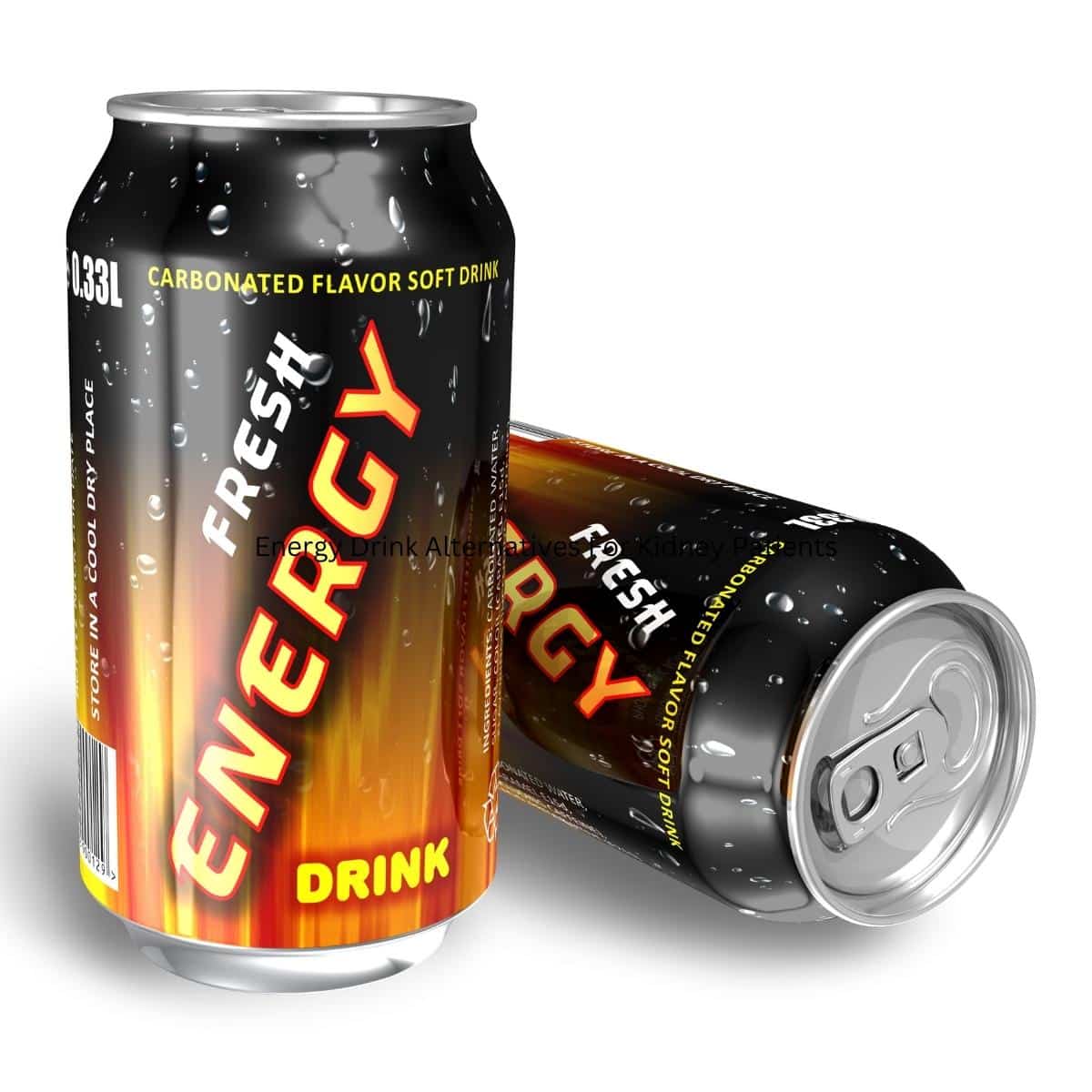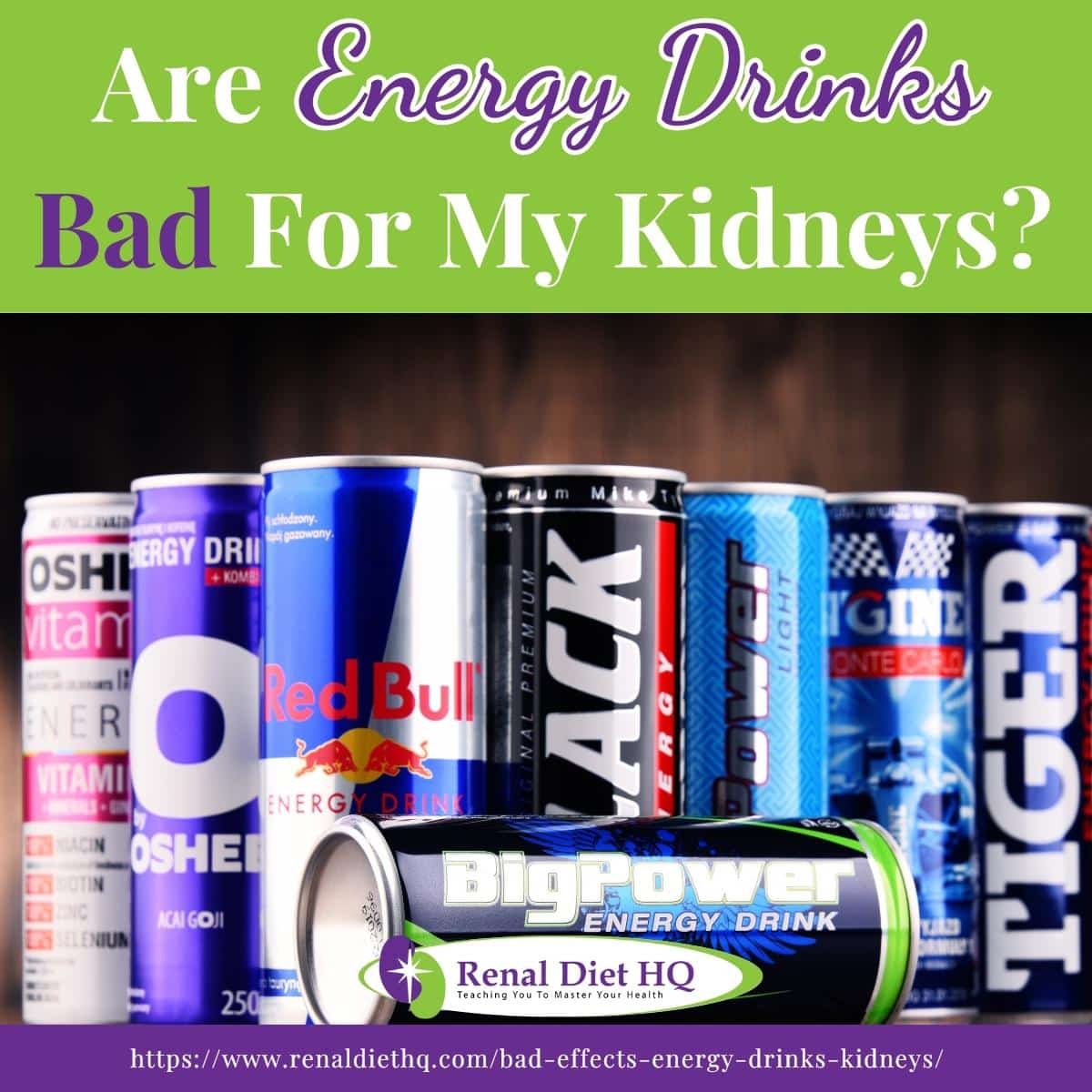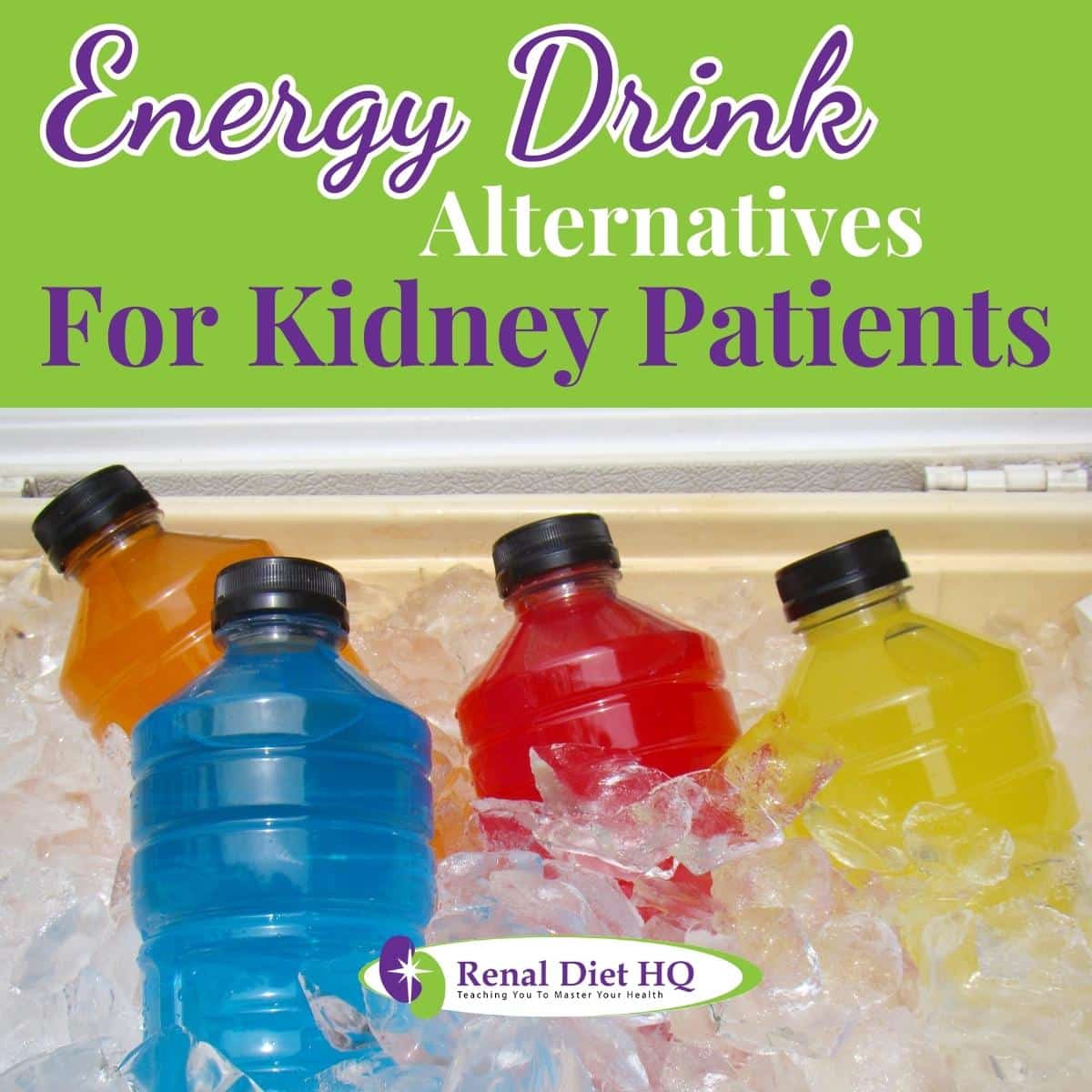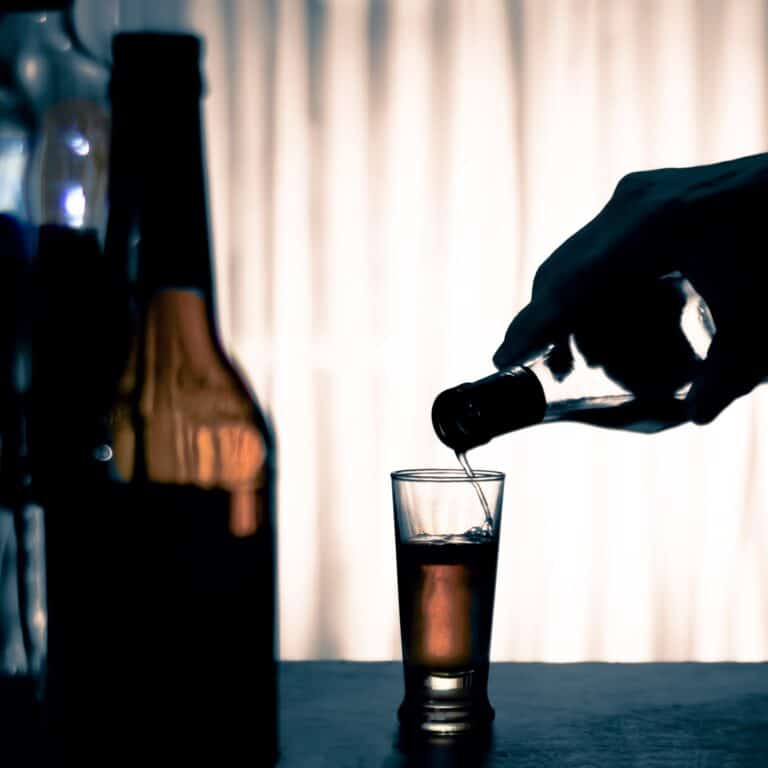Bad Effects Of Energy Drinks On Kidneys
Do you know what energy drinks can do to your kidneys? In recent years, energy drinks have become increasingly popular among adults and children alike. Studies suggest that these beverages may be having a negative effect on our bodies, particularly our kidneys.
This article will explore the potential adverse health effects of consuming too many energy drinks, with an emphasis on their impact on kidney function.

If you’re like most people, you probably don’t think twice about grabbing a can or bottle of your favorite energy drink when you need a quick pick-me-up throughout the day. But did you know that drinking too much of these caffeinated beverages could actually damage your kidneys in the long run?
While it's true that some nutrients found in certain types of energy drinks may provide short-term benefits, overconsumption can lead to serious health issues down the road.
Excessive consumption of energy drinks has been linked to several different forms of kidney dysfunction. From impaired renal filtration rate to reduced glomerular filtration rate – each one potentially leading to more severe conditions such as chronic kidney disease.
It’s important for us all to understand just how much harm we can cause ourselves if we aren't careful with our consumption habits. Keep in mind that there are kidney friendly drinks available to consume that won't hurt you!
Jump to:
- Is Energy Drink Consumption (5 Hour Energy, Red Bull, Etc.) Bad For Your Kidneys?
- Are Sugar-Free Energy Drinks Bad For Your Kidneys?
- Can Energy Drinks Cause Kidney Failure?
- Why Energy Drinks Are Bad For Kidneys
- How Kidneys Respond After Drinking Energy Drinks
- Energy Drink Alternatives For Kidney Patients
- Is Coffee Good For Kidneys?
- Can You Drink Tea With Renal Failure?
- Protein Shakes To Help Boost Your Energy
- Regulatory Oversight Of Energy Drinks
- Energy Drinks Are A Bad Idea If You Have Kidney Failure
- Bad Effects of Energy Drinks on the Kidneys FAQs
- Think Twice Before Opening Another Can Of Your Go-To Energy Drink!
Is Energy Drink Consumption (5 Hour Energy, Red Bull, Etc.) Bad For Your Kidneys?
If you're someone who regularly consumes 5-Hour Energy shots or Red Bull cans on the regular, then this article is for you. You might be surprised to find out that consuming too much energy drinks can have serious consequences on your kidneys!
In fact, research has found that indulging in energy drink consumption often leads to an increased risk for developing kidney disease and other health issues.
Energy drink consumption has been linked with various negative side effects ranging from headaches and nausea to dizziness and rapid heart rate. However, its effect on our kidneys may come as a surprise!
High levels of caffeine content combined with diuretic ingredients such as taurine have been found to cause electrolyte imbalances which can lead to impaired renal function.
The effects of caffeine can be illustrated in some case reports which have shown that excessive energy drink intake over time could even lead to acute tubular necrosis (ATN), a condition where the cells lining the small tubes of the kidney start dying off due to lack of oxygen supply. The result could be permanent and irreversible damage to the organ itself.
It's essential to note that while most people don't experience any adverse effects after drinking one or two energy drinks per day, it's still best not consume them more than occasionally.
Consuming large amounts of caffeine-containing beverages can have direct consequences on our bodies – especially when these are taken without properly hydrating before and afterwards! So if you're looking for an extra boost throughout the day, why not reach for something healthier instead?
For More Recipes and Ideas --->> Get Your Free Meals and Recipes That Are Perfect for Pre-Dialysis Diets, Pre-Dialysis with Diabetes, or Dialysis Diets.
Are Sugar-Free Energy Drinks Bad For Your Kidneys?
These types of beverages are becoming increasingly popular. However, they can have some detrimental effects if consumed in excess. So, what exactly are the risks associated with consuming sugar-free energy drinks?
Firstly, drinking too many sugar-free energy drinks can lead to dehydration because most contain caffeine and other stimulants. In severe cases of dehydration, an individual may suffer from kidney damage as well as electrolyte imbalances caused by water loss.
Additionally, some studies suggest that those who consume high amounts of artificial sweeteners found in sugar-free energy drinks could be at risk for developing certain chronic conditions such as diabetes. If you have any additional questions about what to eat on a diabetic menu, check out this diabetic renal diet meal plan.
This is because excessive amounts of these artificial low-calorie sweeteners may alter glycemic control by affecting glucose absorption and insulin secretion.
All things considered, being mindful about how much sugar-free energy drinks you consume is key when it comes to protecting your kidney health and overall well being.
Can Energy Drinks Cause Kidney Failure?
It is a well-known fact that energy drinks are often consumed in large amounts by people who wish to get an extra boost of energy, but few consider the potential consequences.
To put it simply, yes, energy drink consumption can indeed cause kidney failure if done excessively and without consideration for your health.
To fully understand how this could be possible, one must first take into account what ingredients make up these beverages. Most contain an abundance of sugar and caffeine which can both have adverse effects on our bodies when taken in high doses.
Additionally, some brands offer sugar-free versions with artificial sweeteners as alternatives; however, these still pose risks due to the presence of other potentially harmful additives.
If one were to consume too many of these beverages over a period of time, they may begin experiencing dehydration or electrolyte imbalances which could lead to serious kidney problems such as acute kidney injury.
Furthermore, individuals with existing medical conditions like diabetes or hypertension should avoid consuming them altogether as there is evidence linking excessive energy drink consumption to increased risk factors for cardiovascular disease. Yes, there is exercise for healthy heart that you can do!
The takeaway here is simple: while occasional indulgence in an energy drink may bring temporary relief from fatigue or low energy levels, its long term implications can be quite dire if not monitored properly.
Therefore, before reaching for that next can at the store, we ought to think twice about the potential harm it could do us down the line - especially if consumed regularly!

Why Energy Drinks Are Bad For Kidneys
Energy drinks have become a popular choice of beverage among teens and young adults. Unfortunately, consuming energy drinks can be detrimental to kidney health.
The high levels of sugar and caffeine in these drinks force the body's organs to work harder than usual, which puts strain on vital organs like the kidneys. Here are some of the dangers that energy drinks pose for your kidneys:
High Sugar Content:
- Energy drinks contain large amounts of refined sugars, such as fructose or sucrose, which can increase blood glucose levels and affect the kidney’s ability to filter and reabsorb excess sugars.
- Excessive consumption of sugary beverages can also lead to obesity, diabetes, and other metabolic disorders that put additional pressure on the kidneys
Caffeine Overload:
- Many people don't realize just how much caffeine they're consuming when drinking multiple cans of energy drinks throughout the day. Consuming too much caffeine can impair kidney function by raising urine output and causing dehydration. Furthermore, it increases stress hormones like adrenaline which overworks the heart and other major organs including the kidneys.
- Long-term use of caffeinated beverages has been linked with higher rates of hypertension (high blood pressure), another key factor contributing to kidney damage.
It is important to note that even moderate consumption of energy drinks may still result in adverse effects for your kidneys. Hence, it’s best to limit yourself to one or two per week if you must consume them at all!
Drinking lots of water instead will help keep you hydrated while avoiding any potential harm from excessive sugar or caffeine intake. There are people out there that are able to do no salt no sugar breakfast.
How Kidneys Respond After Drinking Energy Drinks
While energy drinks may seem to give you a boost of energy, they can have serious consequences on your kidneys. In this section, we will explore how the body responds after drinking them and the potential effects that could lead to renal failure.
Consuming too much caffeinated energy drinks over time can increase blood pressure which can put strain on your blood vessels and in turn, can damage your kidneys.
Dehydration, which is among the common effects of caffeine, leads to an accumulation of waste products in the bloodstream, making it harder for your kidneys to filter out toxins efficiently. This puts an extra strain on them and increases their workload resulting in kidney injury if you consume these beverages excessively.
Kidney problems associated with excessive consumption of energy drinks include crystalluria (formation of crystals in the urine), proteinuria (the presence of excess proteins in urine), and acute kidney failure due to sudden decreased blood flow caused by dehydration.
Additionally, research suggests that other ingredients such as taurine, guarana extract, L-carnitine, and glucuronolactone found in most energy drinks might be harmful when consumed regularly in large amounts because they are not regulated by any governmental organization or health authority and therefore, their safety is unknown.
The bottom line is that while occasional consumption of energy drinks may provide short-term physical benefits, prolonged use should be avoided as it can put undue stress on your kidneys leading to serious complications down the road.
Taking care of our bodies means understanding what kind of fuel we’re putting into them - so make sure to choose wisely!

Energy Drink Alternatives For Kidney Patients
For those with kidney health issues, energy drinks, especially caffeinated energy drinks, are not the best choice for an afternoon pick-me-up. However, the high levels of caffeine and sugar found in many popular energy beverages can be particularly hard on kidneys.
Fortunately, there are plenty of alternatives that may provide just as much energy without putting a strain on your organs.
First up is to look into more natural sources of energy like green tea or smoothies made with healthy ingredients like berries, bananas, spinach, and Greek yogurt for CKD patients.
Not only will these options provide you with a good source of nutrients but they will also give a boost that can help get you through the day without taxing your body too much.
A great way to make sure you’re getting enough vitamins is by adding superfoods such as acai powder or spirulina powder to your smoothie recipes which have been known to help people feel energized throughout their days!
Another option is looking for products designed specifically for renal patients such as “kidney-friendly” energy drinks or supplements that are formulated to reduce stress on the organ and still provide the same level of alertness and concentration one would expect from regular energy drinks.
There are also some delicious “energy boosters” available in stores now – items like granola bars or protein shakes that contain ingredients like chia seeds and quinoa which work together to keep you feeling full longer while providing sustained fuel throughout the day.
Finding kidney-friendly alternatives doesn't always mean giving up taste either. Snacks filled with complex carbohydrates like popcorn mixed with nuts, dried fruit, and dark chocolate chips offer both satisfaction along with a steady stream of energy - perfect for powering through any task at hand! Kidney friendly snacks are easier to come by than you think!
Is Coffee Good For Kidneys?
It is important to consider whether coffee could be a viable alternative for kidney patients. As with caffeinated energy drinks, there are both benefits and drawbacks associated with drinking coffee.
While research has shown that moderate consumption of certain beverages can offer protective effects on renal health, there is still some debate surrounding the safety of caffeine-containing drinks such as coffee (coffee on a renal diet).
As caffeine is known to cause acute effects such as elevations in blood pressure and heart rate, as well as increased urine output, there may be some postulations that consumption of coffee can increase the risk of medical conditions such as hypertension and chronic kidney disease.
On the contrary, numerous studies have highlighted potential positive impacts of drinking coffee on kidney health. For instance, one review showed evidence that coffee intake was associated with a dose-dependent lower incidence of chronic kidney disease, end-stage kidney disease, and albuminuria.
However, the role of caffeine in overall kidney health is yet to be determined. Ultimately though, further research needs to be done before any definitive conclusions can be made about the impact of caffeinated beverages on renal health.
For coffee, moderation of your daily caffeine intake is still key in making sure that your pick-me-up would not lead to adverse health effects down the line. Make sure to talk to your doctor and your dietitian to help you determine the right amount of coffee you can consume in a day.
Can You Drink Tea With Renal Failure?
It is possible to drink tea when you have renal failure, however it must be done in moderation. Tea contains antioxidants and other beneficial compounds that can help support kidney health.
However, if consumed excessively, the caffeine present in tea may lead to dehydration which could further exacerbate any existing kidney issues.
When drinking tea with renal failure, it is important to choose varieties of herbal teas such as chamomile or peppermint. These are much lower in caffeine than traditional black or green teas and do not contain oxalates, a compound found in some tea leaves that has been linked to kidney stones.
Additionally, they provide many benefits including improved digestion and relaxation effects due to their calming properties.
For those with renal failure who enjoy the taste of regular black or green teas, decaffeinated varieties are available. Decaf versions still retain most of their beneficial components while also eliminating the risk posed by excessive caffeine consumption.
It's also important to remember that there's no one-size-fits-all approach here – everyone will respond differently depending on individual factors like size, medication use, and lifestyle habits. So, it's best to consult your doctor before making any drastic changes to your diet. What does a nephrologist treat?
Protein Shakes To Help Boost Your Energy
Have you ever considered using protein shakes to help boost your energy levels? While many people turn to energy drinks as an instant source of quick energy, they can often have adverse effects on the kidneys.
So if you're dealing with health issues, it's important to consider alternative ways of boosting your energy levels without negatively affecting your health.
Protein shakes are a great option for those looking to increase their energy levels in a more healthy way. Not only do they provide essential nutrients and minerals that stimulate natural energy production within the body, but they also contain fewer calories than most energy drinks.
This makes them ideal for people who want to avoid a sugar crash or other unhealthy side effects associated with drinking too much caffeine.
When selecting a protein shake, look for one made from real ingredients like egg whites or whey protein isolate - both of which are excellent sources of easily digestible proteins and amino acids that can help kick start the metabolism.
Additionally, opt for products that don't include any artificial sweeteners, colors, or preservatives as these can potentially put more strain on damaged kidneys.
However, if you have renal failure, the amount of recommended daily protein intake would vary depending on your specific condition. Some, such as predialysis patients may need to restrict protein, so they should watch out for how much protein content these shakes have.
On the other hand, dialysis patients usually need more protein. Hence, it’s best to consult with your physician and dietitian before adding protein shakes in your diet to help you be better guided.
With all this in mind, it's clear that there is no definitive answer when it comes to what type of drink can be best consumed by someone suffering from renal failure.
Protein shakes may offer an effective solution to safely increasing your daily intake of nutrients, but the amount to consume should always be individualized.
Regulatory Oversight Of Energy Drinks
Regulatory oversight of energy drinks is essential to protect consumers' health. Governments must create and enforce laws, regulations, and guidelines that require all energy drink manufacturers to adhere to the highest standards when producing their products.
This means monitoring what ingredients are used in each formulation as well as ensuring that all labeling information accurately reflects the contents of each can or bottle.
To achieve this level of oversight, governments need to provide adequate funding for regulatory agencies who have the authority to inspect production facilities and test samples from retail outlets.
It's also important for regulators to ensure that energy drinks contain no prohibited substances such as stimulants like caffeine, taurine, guarana, yohimbe bark extract or other herbs with unknown effects on human physiology.
Additionally, they should impose restrictions on marketing tactics aimed at youth populations so that these vulnerable groups aren't exposed to potentially harmful products without proper guidance from parents, guardians, or health professionals.
Recent research has found a link between long-term use of caffeinated energy drinks and an increased risk of developing kidney disease due to dehydration.
Therefore it’s crucial that governments develop rules and regulations designed specifically around protecting consumers from unknowingly consuming dangerous levels of any given ingredient while still allowing adults access to these types of beverages if desired.
With appropriate regulation in place, responsible consumption habits can be encouraged and the risks associated with overconsumption minimized.
Energy Drinks Are A Bad Idea If You Have Kidney Failure
Energy drinks are a bad idea for anyone with kidney failure, as the caffeine in them can have damaging effects on kidneys. Caffeine is a diuretic and causes more urine production than normal, leading to dehydration.
Dehydration can be hazardous for people with weakened kidneys due to its consequences of electrolyte imbalance and potentially dangerous fluid buildup.
High levels of sugar from energy drinks could also contribute to diabetes and hypertension, which increases the risk of further damage to the kidneys.
Individuals with kidney failure should instead opt for healthier alternatives such as protein shakes or smoothies made at home without added sugars or other unhealthy ingredients.
These can provide essential vitamins and minerals that energy drinks lack, improving overall health and well-being.
Additionally, these beverages don’t contain any controversial additives like taurine or guarana found in many commercial energy drinks that may be detrimental to someone's health if they already suffer from kidney problems.
It's important for those who have experienced renal issues to look after their bodies by avoiding overconsumption of caffeinated products. Doing so will help prevent any long-term chronic health problems caused by consuming too much caffeine in energy drinks along with other stimulants.
Taking precautions now can ensure better overall health in the future while avoiding potential complications related to kidney disease.
Bad Effects of Energy Drinks on the Kidneys FAQs
With energy drinks, it's important to consider that each person has different levels of tolerance towards caffeine and other stimulants in these beverages.
With varying effects on one’s individual body chemistry, some individuals may need more or less than others before feeling adverse effects from consuming them.
Moreover, since every drink variant will have different contents, along with individual physical differences, it is difficult to determine the safe consumption levels that would apply to all.
There are also differences in caffeine metabolism that vary among individuals, depending on their age, sex, weight, and health condition, so one must always be wary of excessive energy drink consumption.
One of the possible things you can do in determining safety lies within self-assessment. Before considering any set amount as ‘safe', it might be wise to observe your own reaction after drinking different amounts over time.
Once you've formed a general idea about your personal limit for energy drink consumption, investigating scientific research will help paint a clearer picture of what is considered 'healthy'.
From there, you'll have a better sense of knowing whether or not the level at which you are consuming energy drinks falls within reasonable parameters.
Ultimately, it is best to be guided by your healthcare team–your doctor and your renal dietician–to be able to make the healthiest decision for you when it comes to energy drink consumption.
For many people, energy drinks are an integral part of their daily lives. But for those with pre-existing kidney conditions, it's important to understand the risks associated with consuming them. Use these tips for improving kidney function with diet.
Energy drinks contain high levels of caffeine, taurine, and other stimulants that may be unsafe for those who already have limited kidney function. If consumed in excess or without proper hydration, these ingredients can put additional strain on the kidneys, leading to dehydration and electrolyte imbalances.
Furthermore, studies have found that drinking too much of these beverages could increase a person’s risk for developing acute renal failure or chronic kidney disease over time.
Given this information, it is best for people with pre-existing kidney conditions to limit their intake of energy drinks as much as possible.
It is also recommended that they stay properly hydrated, based on your individual level of safe fluid intake.
Make sure that you have bottles of water with you, not just cans of energy drinks. Additionally, if any unusual symptoms occur after consuming energy drinks—such as nausea or persistent thirst – individuals should consult their doctor right away to ensure there isn't something more serious going on.
By understanding the potential risks involved and taking appropriate precautions accordingly, those living with existing kidney issues can enjoy energy drinks without putting their health at further risk.
Have you ever wondered if it's safe to mix energy drinks with other beverages? Mixing drinks can be a dangerous game, especially when the beverage in question is an energy drink. But how risky is it really?
Mixing different kinds of drinks can lead to some serious health risks; however, there are certain combinations that may actually be beneficial for your body!
Let's take a look at what kind of energy drink combinations are safe, and some tips on how to more healthily consume them:
1. Combining caffeine and nitric oxide-based ingredients: Caffeine and nitric oxide-based ingredients such as taurine or guarana have been found to increase blood flow throughout the body. This combination has also been known to improve mental focus and physical performance.
2. Optimal hydration: When combining energy drinks with water, electrolytes like sodium and potassium help ensure optimal hydration. The right amount of these minerals helps reduce fatigue while providing essential nutrients needed by the body. Here are fluids to hydrate with kidney disease.
3. Moderate intake: Consuming too much energy drink can pose adverse effects on kidneys, so moderation is key! It's best to stick to one or two servings per day and stay away from sugary mixes or highly caffeinated products.
It’s always important to remember that everyone responds differently to each type of mixture - even those with pre-existing kidney conditions - so don't forget to consult your doctor before trying any new concoctions.
With careful consideration and research into potential benefits and risks associated with mixing different types of beverages, you should be able to make informed decisions about which combos work best for you.
While these drinks can provide us with temporary pick-me-ups, it is also crucial to see if they offer any other benefits. To answer this question, let’s take a look at what ingredients in energy drinks would be beneficial for kidney health.
It turns out that some nutrients in energy drinks may potentially be good for your kidneys! Many contain natural compounds such as electrolytes and B vitamins which support normal fluid balance and help keep them functioning optimally.
Other popular ‘kidney friendly’ ingredients are caffeine, guarana extract, taurine and ginseng – all of which have been found to improve blood flow in the body.
Additionally, other healthy additions such as green tea extract may offer antioxidant protection against free radicals that could otherwise damage cells over time.
When choosing an energy drink to consume responsibly, consider factors such as sugar content, artificial flavors or colors, preservatives, and additives which can negatively impact your overall health if consumed in excess.
Better yet - opt for brands with simple ingredient lists boasting recognizable nutrients and minerals like those mentioned above. As always; moderation is key when consuming anything with high levels of sugar or caffeine too frequently.
By making informed decisions about the type of beverages we choose to consume we can ensure our bodies are receiving optimum nutrition without risking harm from excessive amounts of stimulants and sugars.
In doing so we maintain optimal organ function including efficient renal processes essential for achieving peak performance both physically and mentally!
If you're living with kidney disease, you may be looking for ways to stay energized while protecting your kidneys. Fortunately, there are plenty of kidney-friendly energy sources that won't put additional strain on your organs.
The primary goal when dealing with renal failure is to follow a diet low in salt, potassium, and phosphorus. It's also important not to eat too much protein as this can cause further damage. Eating small meals throughout the day helps fuel your body without overworking your kidneys. Portion control secrets do exist!
Some great examples of energy-boosting foods include oatmeal or quinoa topped with fresh fruit; roasted root vegetables like sweet potatoes; lean proteins such as grilled salmon; avocado toast made from whole wheat bread; and yogurt parfaits layered with granola and berries.
You should also avoid sugary snacks and drinks – including energy beverages - which can spike blood sugar levels and make it harder for your body to regulate its fluids properly. For patients with diabetes, it is also important to keep blood sugar levels in the normal range.
Tea is an excellent substitute and comes in many tasty varieties. Additionally, regular physical activity has been shown to increase oxygen flow throughout the body, thus providing more energy naturally without putting strain on the kidneys.
Living with kidney disease doesn't mean giving up all forms of energy – just adjusting what we eat and drink accordingly to prevent adverse health effects.
Making healthy lifestyle changes combined with staying mindful of our diets can help us achieve optimum health despite the challenges posed by chronic illnesses such as renal failure.
Think Twice Before Opening Another Can Of Your Go-To Energy Drink!
Energy drinks have the potential to cause harm to our kidneys if consumed in excess. It is important for individuals with pre-existing kidney conditions to be aware of the risks associated with drinking these beverages and adjust their consumption accordingly.
For those without any existing health issues, moderation is key: no more than one or two servings per day should be consumed.
When it comes to mixing energy drinks with other beverages, such as alcohol or soda, caution should still be taken; excessive consumption can lead to dehydration and further strain on the kidneys.
Furthermore, long-term effects of consuming too many energy drinks include a buildup of toxins in the body which can damage both renal tissue and overall organ functioning.
It is important to choose an energy drink that contains nutrients specifically tailored towards improving kidney health while avoiding unnecessary additives which could do more harm than good. When in doubt, the best way to adverse health effects is making sure to check with your doctor first before adding energy drinks into your diet!













